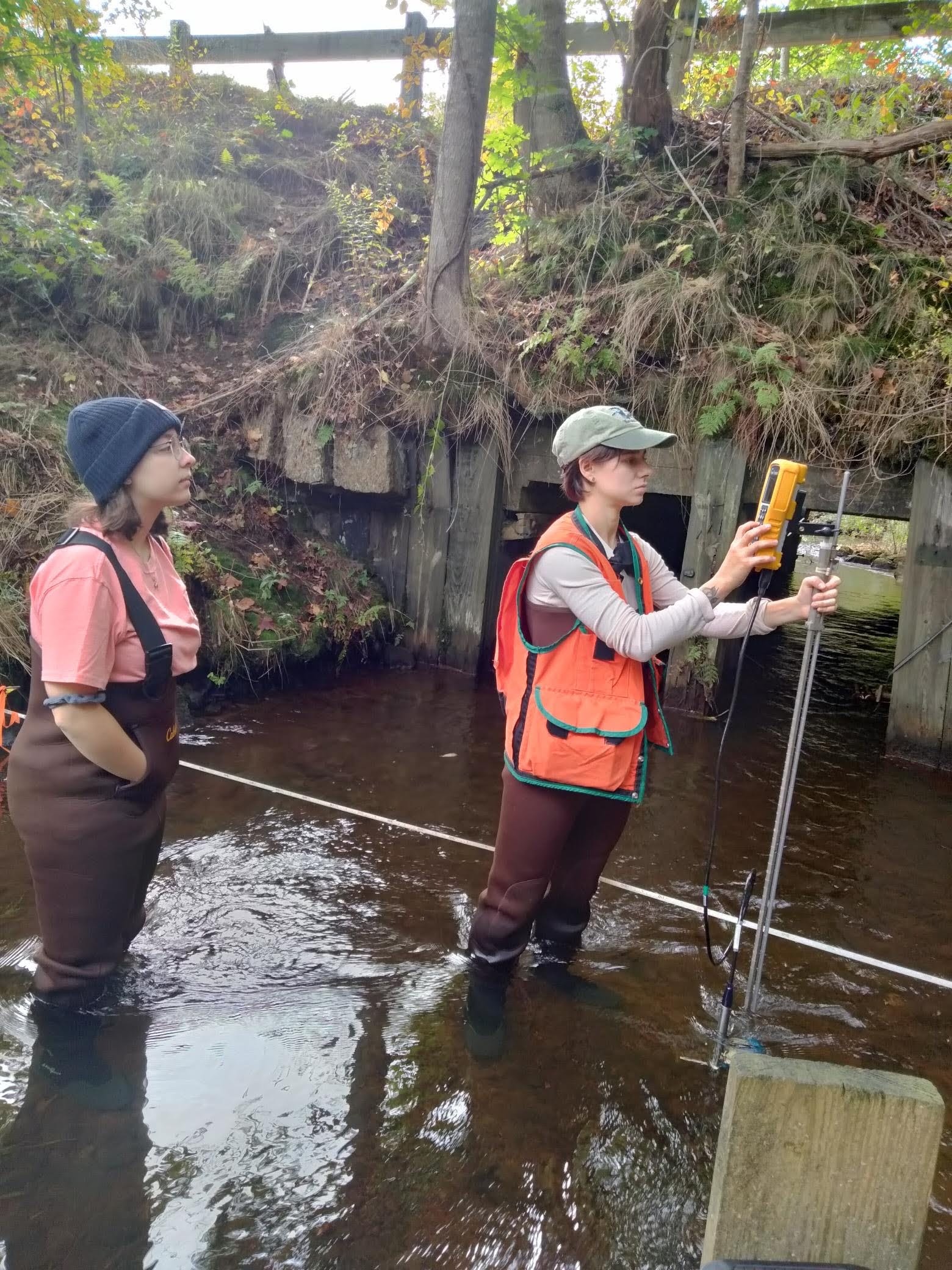
Chanda Cragnotti, BA Interdisciplinary Science, Explores Aquatic and Terrestrial Ecosystems at the Marine Biological Laboratory
Climate change, a global pandemic, and recent natural disasters have highlighted the need for researchers and scholars who can explore and explain the interconnectedness of science and society. Chanda Cragnotti, who is majoring in Interdisciplinary Science (IS) at Eugene Lang College of Liberal Arts, combines her interest in the natural sciences with communication skills to address environmental issues and advocate for change. She spent the fall semester participating in the Semester in Environmental Science, a program offered by the Marine Biological Laboratory (MBL). Run by the University of Chicago, the program provides an intensive 15-week field and laboratory-based learning experience in ecosystem science and the biogeochemistry of coastal forests, freshwater ponds, and estuaries.
Although Cragnotti intended to study environmental science at college, she knew she did not want to pursue a traditional science program. “That didn’t feel right to me, because I wanted to focus on science communication and climate communication,” says Cragnotti. “Growing up, I had a lot of climate anxiety, like most people around my age probably did. I always felt like it was something I wanted to learn about and be able to talk about. Because of the way science is often portrayed, I felt like I couldn’t understand it. When I got to The New School and started taking science classes, I realized I could understand it and other people could understand it, too, if it’s explained in a different way.”
Cragnotti was introduced to Lang’s IS department through the course Chemistry of the Environment, taught by Bhawani Venkataraman, an associate professor of chemistry. “I started attending the IS department meetings, and at one meeting, they mentioned that another student had participated in the MBL program,” says Cragnotti. “That piqued my interest, but at that point, I hadn’t taken many science courses and didn’t have lab experience. After I completed most of the IS curriculum, Professor Venkataraman encouraged me to apply. I applied to the program because I wanted more hands-on experience in the lab and in the field. It gave me the opportunity to learn that I actually like doing fieldwork and lab work, and I now have the experience to be able to apply for positions like a research assistant or lab assistant or to do fieldwork at a place like the National Park Service.”
As an MBL participant, Cragnotti spent the fall semester at the program’s Ecosystems Center in Woods Hole, Massachusetts. The center’s location on the coast enables students to study terrestrial and aquatic ecosystems. “It was very intense, almost a crash course in environmental science. We started almost immediately with fieldwork and lab work, and we also had our core classes and an elective,” says Cragnotti. “The fieldwork was my favorite—learning the different methods for measuring certain systems and analyzing different problems.”
After completing their core classes, students work on independent research projects with the assistance of a mentor. “My research was on tardigrades and lichens. I focused on one type of lichen that was very accessible; it grew everywhere,” says Cragnotti. “I collected lichen samples and identified the species of tardigrades I found in that microenvironment. I looked at the habitat preference of the lichen and whether tardigrade communities differed depending on where the lichen was growing.” Cragnotti. is continuing to work on the project this semester at Lang. “I’m working on a descriptive paper with Jordan Hoffman, an assistant professor of biology, who also does work with tardigrades and lichen.”
MBL offers participants valuable experience in the field and the opportunity to master a variety of scientific methods—from traditional research techniques to interdisciplinary approaches. “MBL reaches out to The New School yearly because it is trying to attract a variety of students with different types of backgrounds in the sciences and liberal arts. It has worked with Lang students in the past and is interested in having more students participate,” says Cragnotti. “I thought I was going to be the only person from a liberal arts college. There were, of course, people from large research universities like the University of Chicago, but there were also people from other liberal arts colleges like Oberlin and Wesleyan, who had a different perspective coming in. It was nice to be able to talk with people from a variety of backgrounds who are interested in the same thing I am.”